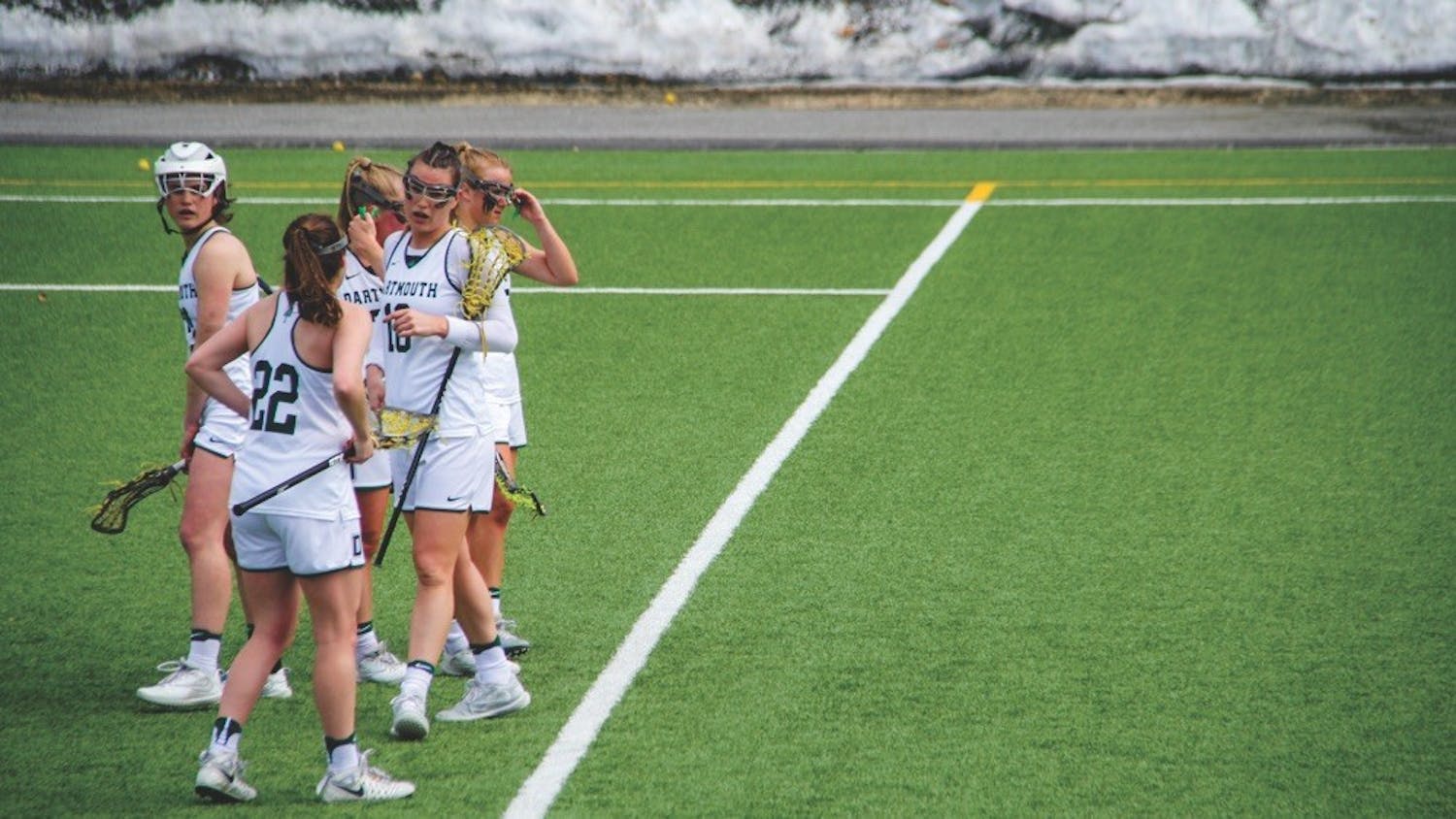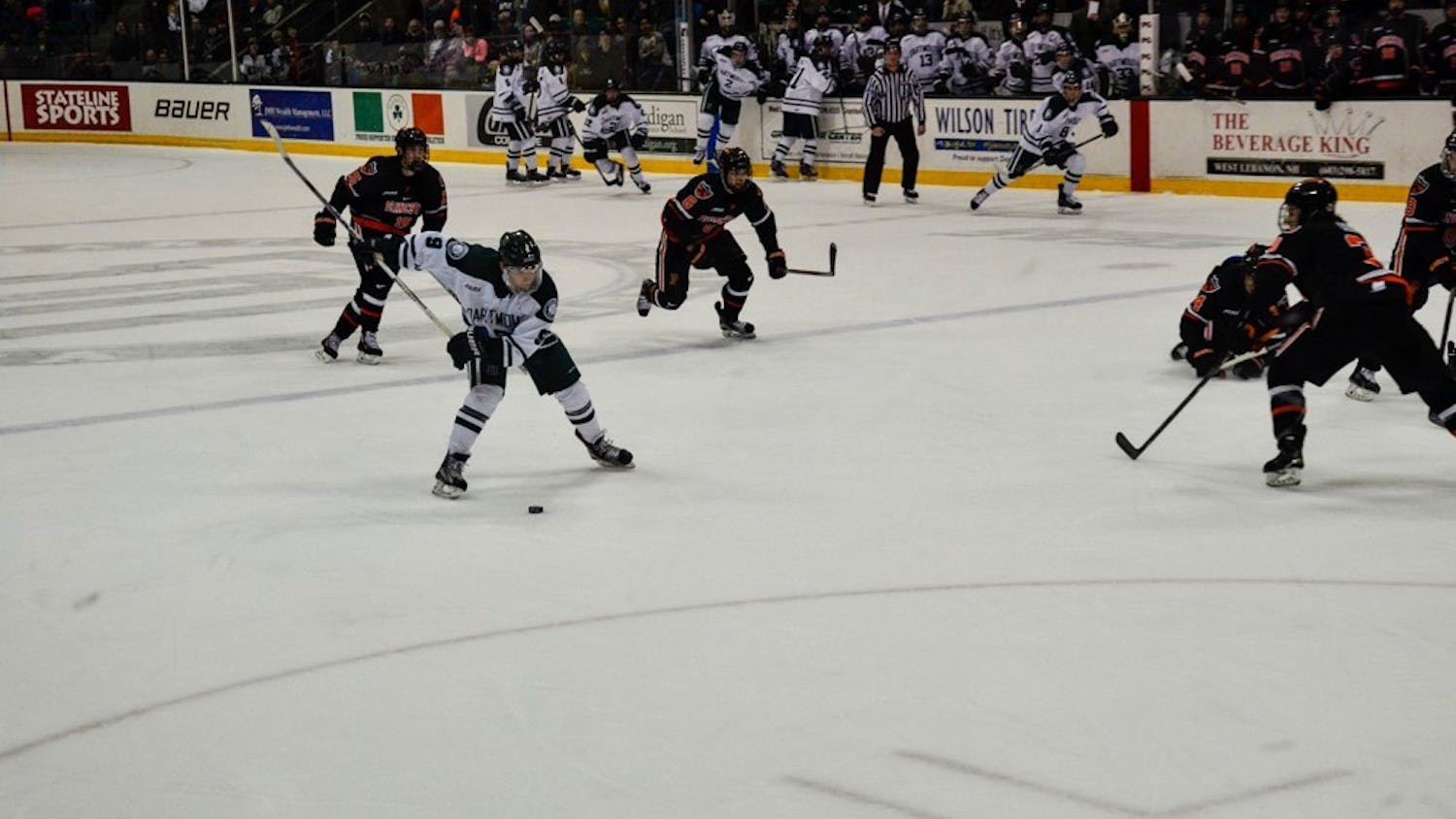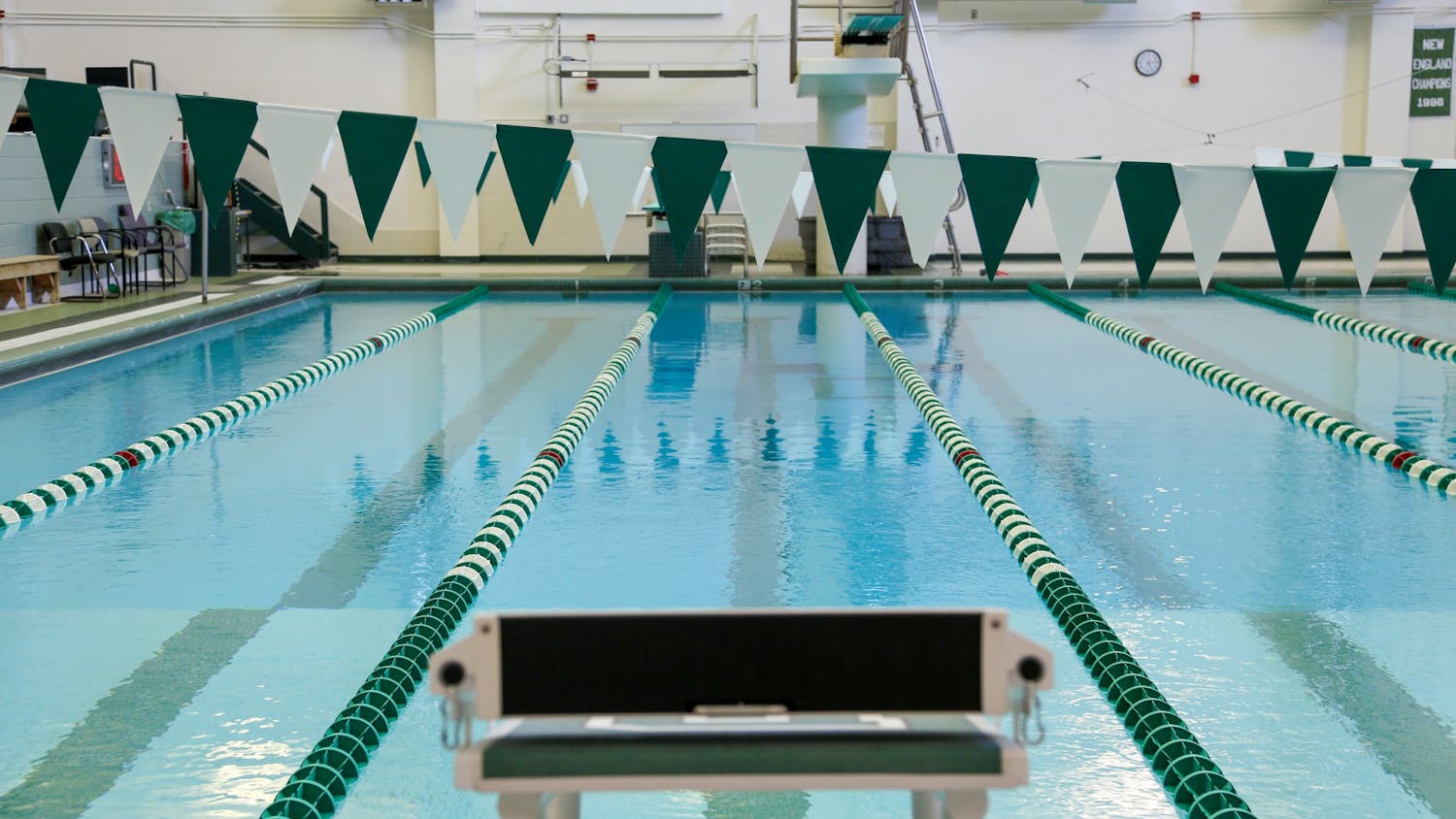The Ivy League presidents announced their unanimous decision on Wednesday to cancel all varsity athletic competitions and practices for the spring term. This decision preceded the suspension of the NBA season Wednesday night and the cancellation of the Power 5 NCAA basketball tournaments on Thursday along with other conference tournament cancellations. The Dartmouth sat down with athletics director Harry Sheehy Thursday morning for an extended interview about the Ivy League’s cancellation of spring sports and its ramifications.
How are Dartmouth players and coaches reacting to the Ivy League’s decision?
HS: Our coaches in particular were wandering around the halls yesterday afternoon when they got it. I think there’s a certain amount of just stunned reaction because it seemed so extreme. Now, we had an all coaches meeting a few days ago, and I said to our coaches, “We don’t know where this is going, so you need to be prepared for virtually anything down the road.”
Overall, the response was tremendously mature by our coaches, so I was really proud of them, because your natural reaction is to have an emotional response. As a former student-athlete, I’m heartbroken for our athletes, particularly seniors. But the decision by the Ivy League presidents was not made lightly at all. I had several meetings with President Hanlon over the last few days, and I know that they struggled with this decision. In the end, it was unanimous. The athletic directors were handed the decision with the idea of explaining it and basically putting it into action.
Were the student-athletes aware of the possibility of this decision?
HS: I’m going to say probably not. I think it happened so quickly. What happened a few days ago was the men’s and women’s Ivy League basketball tournament was canceled, but we were going to go on with the spring as the situation allowed. The things that impact this are not just the number of people involved but the venue — how close is it, how compact is it — and then the world changed last night when NBA player Rudy Gobert from the Jazz tested positive.
How long had you been discussing the possibility of canceling the Ivy League spring season, and when did it become clear that was the decision that needed to be made?
HS: It hadn’t been very long, because this was so rapidly moving. Just go back two weeks. No one was thinking about this. Then I think one of the tipping points — and I don’t know whether the presidents paid attention to this or not — but when the New England Small College Athletic Conference canceled the spring, I think that everybody kind of went, “Whoa, what do we do now?” We’re watching this thing unfold in real time right in front of our eyes by the hour. I would expect to wake up tomorrow with the world in a slightly different place than it is right now.
The Ivy League was the first to cancel its conference basketball tournament. When did that conversation start?
HS: It started last week. There was some feeling that we were going to go with highly restricted attendance. Whether that meant each school would get 100 attendees or you get three per student-athlete, how we arrived at that was probably going to be up to the institutions. Again, the world changed over the weekend. The Monday discussion was restricted attendance. Then, I think the presidents had a phone call and came out with that, looking at the spring season, trying to keep the integrity of the spring season as much as we could.
I had gone to the presidents and said, at spring break, if we ask students to go home, I’ve got two Ivy League lacrosse games that take place right in the middle of spring break. Columbia University here in women’s lacrosse and Harvard there in the men’s lacrosse. In order to keep the integrity of the Ivy League season alive, I was asking the question, “Are we going to be able to play those games?” Our intent was to play them until the world changed on us.
Why do you think the decision was made to cancel all the way down the line through May instead of just through the middle of April?
HS: This is my thinking, and I’m not going to ascribe this to the presidents at all. One thing I did say in our president’s cabinet meeting yesterday was, “Everything I’ve read, everything I’ve seen on television or news reports says that this is the tip of the iceberg that we’re at right now.” So we’re still climbing the mountain here. We haven’t reached the top and started down, so if we’re going to send students home and say we’re going to come back after spring break, how are things going to be better in two weeks?
I listened to Dr. Tony Fauci, the director of the National Institute of Allergy and Infectious Diseases, and he’s saying there could be millions and millions of people infected with this thing, so I think we have to react prudently. I think President Hanlon’s action was bold, but it will seem less bold as time goes on.
You mentioned that older individuals are at higher risk. Do you think student-athletes analyze these types of decisions differently from older adults?
HS: I would have when I was 19. Simple and easy are two different things. I think this was a simple decision; it was not an easy decision. In our society, we get “simple” and “easy” confused all the time. There’s no way this was an easy decision. I know President Hanlon wrestled with this. I have a high level of trust in our president, and I have a high level of trust quite honestly in the other seven. I know this decision wasn’t made lightly, so when President Hanlon called me, I had no inclination to fight him. None.
What do you think the financial impact of canceling spring sports for the College?
I think the greater financial impact is having the students empty out from campus. I don’t actually know; we’re working on that right now. I asked our business office to get me the numbers on what this looks like relative to our budget and what’s it’s going to do to us, and we have to consider things like fundraising. It’s going to be harder to raise funds when you’re not playing a season.
We were just dealing with an email about diver Justin Sodokoff '21, who recently qualified for the NCAA championships, and the justification to go was he’s worked so hard. This is the culmination of his career. All those things are true; none of them have anything to do with whether we send him or not. That’s what’s heartbreaking about this. When I went to college — I went to Williams, very much like Dartmouth actually — had this happened to me, I would have been devastated. If it happened to me as a senior, it would have knocked me for a loop.
How does the cancellation of the Ivy League spring season affect transfer eligibility or possibilities for redshirting? I know the Ivy League does not typically grant that privilege. Might seniors and other athletes get an extra year of eligibility?
HS: We’ve asked President Hanlon to see where the presidents lie on that issue and to have us be able to work with compliance so that if a student-athlete wants that season of eligibility left that they can get it. It’s more complicated here than at schools that have semesters. We’re a quarter system and that’s more complex, but I very much want to investigate the potential for students to be able to do that. I also think that if you haven’t used up this season of eligibility and you graduate, you are eligible to transfer and be a graduate transfer. There are some possibilities to continue playing. But again, we have to put this in perspective. In the scope of what the world and this country are going through now, it’s going to become more apparent as we go forward that we actually displayed pretty good judgment.
Why do you think the Ivy League is ahead of the game compared to other Division I conferences and professional sports leagues?
HS: I actually have a pretty strong opinion on that. We’re in the process as a group of eight athletic directors of putting together a white paper for the presidents on what distinguishes us from the rest of the country. This decision would be one piece of proof that athletics in the Ivy League is not the tail that wags the dog. We’re not. We understand where we fit in the scope. We are clearly not academic, but we’re clearly educational, so I’ve told our folks — the court, the rink, the fields — they’re all classrooms, they’re all learning laboratories, they’re all leadership laboratories. It’s really heartening to me to see the Ivy League athletic directors come together to put this into play and to show the presidents how we’re different.
We already do many things. We restrict out-of-season practice to 12 practices and a competition. The rest of the country gets far more time. But I want our students to have a life: a life outside of their athletic experience. We want to be competitive, we want to succeed in league and we want to succeed at the national level in some places. There’s no reason our women’s lacrosse team can’t compete for a national championship. That’s what’s heartbreaking for our kids and for me.
Do you expect other conferences to follow the Ivy League’s action?
HS: For me to predict that the NCAA tournament is going to be canceled is my bold prediction; it may not happen. They may play it without fans and try to recoup some of the TV money. But the environment is what sells it. The last minute buzzer-beater, with nobody in the stands — if you pan in it looks good, but if you pan out it doesn’t look nearly as good.
Here’s what I would say. This situation is volatile enough that it may very well be that conferences start to fall in line with what we’re doing. Rudy Gobert had played seven, eight, nine games in the last 14 days, so now you take that and you go, what if one person on every team tested positive? And now you take that tree and you grow it — that’s all it’s going to take is for a student-athlete that’s played a few games to test positive. So I would expect it to morph.
Will student-athletes still be allowed to train in small groups this spring?
HS: I think the intent is to end this activity, but see, that’s why campuses are sending people home and not bringing them back right away. I think if someone said we’re going to look at this April 15 — what’s going to have changed on April 15, except it’s going to be worse? So I think what we’re trying to do is have our head of strength and conditioning and our nutritionists and Dartmouth Peak Performance try to work with teams to get their kids programs where the improvement won’t stop. It just won’t be in groups here. So we’re going to ask our athletes to do the best they can.
Dartmouth canceled club sports as well for the spring following the Ivy League’s decision. Do you know what factors played into that decision?
HS: The same exact factors. So take our rugby program, men’s rugby — one of the best programs in the country. Certainly varsity-like. That has the same challenges. Now take 15s, and you’re in a scrum. You can’t win that one, right? You can’t win that one. And, let’s face it, rugby, half the time you look like you’ve been in a pro boxing match. There’s cuts, there’s bleeding — that was an easy one. But all the same things that varsity sports have to go under — the close contact, the close venues — those are all prevalent in club sports as well.
How will you monitor the situation going forward?
HS: Because I sit in the President’s cabinet, every Monday morning, we meet as a group of 10 or 12 people. We’ll be monitoring it as a group as we go forward and try to make the very best decisions for Dartmouth. Because it’s uncharted water, we’re going to make some decisions that we’re really not going to know the outcome, because we can’t. It’s too volatile right now. The national landscape is going to play an impact on everything we do at institutions. This is a national story — it’s not a regional story, it’s not a local story — it’s a national story and you’re not going to watch a newscast in the next month that doesn’t lead off with a coronavirus update. That’s the world we live in right now. So we’ll monitor it, and we’ll also monitor it athletically, see what other people are doing. We had a call with the Ivy Athletic Directors last night to discuss what we were doing with postseason winner competition, because that’s institutionally decided.
I’m just so heartbroken for our athletes. It is so crushing. My experience meant so much to me. It’s why I’m in the business, because I believe in the business, and this stinks quite honestly. This stinks for them. So I hope we’ll get through it, I hope we’ll go on, I hope that the young men and women who play for us will be able to put this in perspective at some point.
This interview has been edited and condensed for clarity and length.



